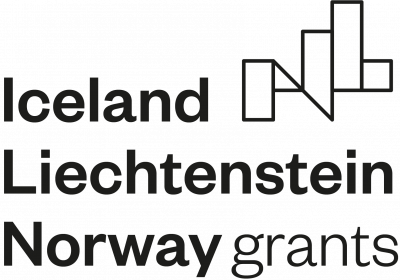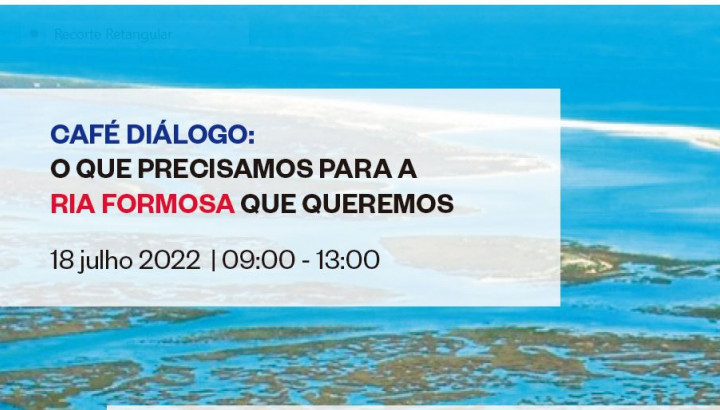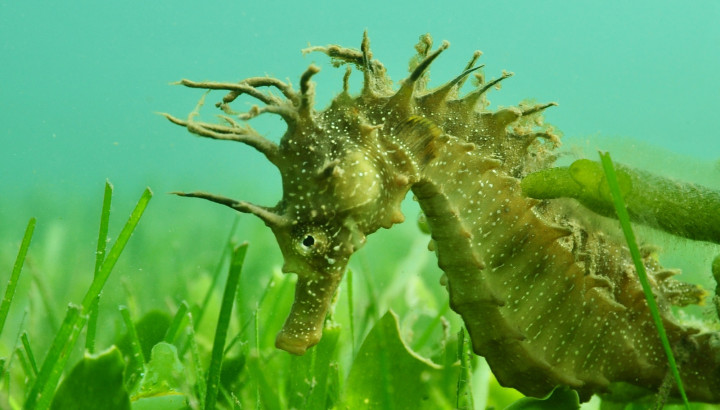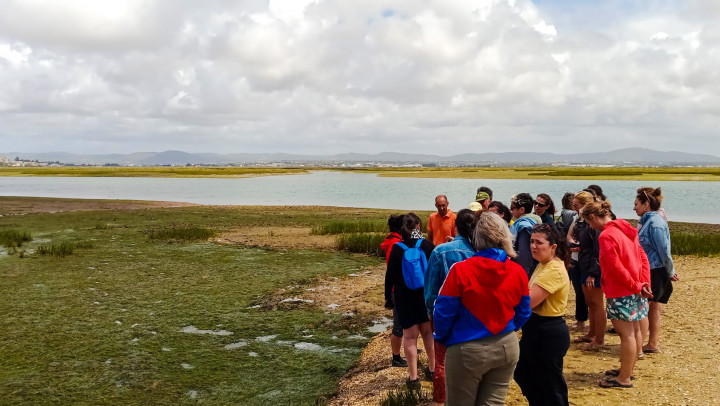Coastal ecosystems formed by macroalgae, seagrasses and saltmarshes, also known as blue forests, are amongst the most valuable ecosystems on earth. They are powerhouses of benefits for human well-being through the provision of a variety of global and regional ecosystem services, including:
- Climate change mitigation through carbon sequestration and accumulation in sediments
- Supporting biodiversity, including nursery grounds for commercial species
- Water purification
- Coastline protection
- Diseases control.
In spite of their ecological, societal and economic importance, blue forests "lack charisma". Their benefits and values are poorly grasped by the general public, particularly by decision-makers and the media, and surprisingly even among professionals whose livelihood directly depends on these ecosystems (e.g. fishermen, maritime tourism activities).
The Blue Forests project aims to address these issues by developing education and training activities and materials for an audience ranging from university students to elementary school teachers, decision-makers and environmental authorities, media and maritime tourism professionals. The project's team will work closely with these audiences in view of developing their skills and provide capacity-building on the topic of blue forests and the important ecosystem services they provide. In particular:
- Teachers will be prepared to convey the importance of the ecosystem services perspective of blue forests to school students, supplementing the existing gap in the curricula.
- Students, the scientists and environmental professionals of tomorrow, will be more qualified in the subject.
- Decision-makers will have a more sound scientific background on which to make better judgements on management and conservation decisions.
- Media professionals will be better equipped in terms of scientific capacity to disseminate news about the importance of coastal ecosystems, particularly blue forests,
- Marine tourism professionals will be better equipped to walk, drive or sail coastal ecosystems with tourists, provide more informed service and reduce their environmental impacts.
Funded by:

Programme Operator:


Promotor:

Partners:


Project funded by Iceland, Liechtenstein and Norway through the EEA Grants. Through the Agreement on the European Economic Area (EEA), Iceland, Liechtenstein and Norway are partners in the internal market with the Member States of the European Union. As a way of promoting a continuous and balanced strengthening of economic and trade relations, the parties to the EEA Agreement established a multi-annual Financial Mechanism, known as EEA Grants. EEA Grants aim to reduce social and economic disparities in Europe and strengthen bilateral relations between these three countries and beneficiary countries. For the period 2014-2021, a total contribution of €2.8 billion has been agreed to 15 beneficiary countries. Portugal will benefit from an amount of 102.7 million euros. Learn more at eeagrants.gov.pt







